Peg Herring's Blog, page 11
November 7, 2016
When the Teacher Calls about Your Kid
As a teacher, I met lots of kids who misbehaved from time to time. What was interesting was parental reactions. It boiled down to two types.
When presented with an instance of a child's disruptive actions, the helpful parent said something like, "That won't happen again."
Most of the time, it didn't.
Unhelpful reactions took several forms:
"It's not true." - I'd walked into the girls' bathroom and seen their daughter with a lit cigarette in her hand, standing in a cloud of smoke. (I must have misunderstood, or maybe I need my eyes checked.)
"Someone else started it." Frequent reaction to fights.
"It isn't that big a deal." - This was in reaction to her son peeing on another kid because he wore ragged clothes. She actually said, "He's just a ___", naming a local family living in poverty.
"Other kids did the same thing and got away with it." This excuses your kid's behavior how?
I could go on, but you get the idea.
Of course life isn't fair, and sometimes people lie. But a responsible parent looks for the truth in two ways: what objective people say about their kid, and perhaps more importantly, what the kid him/herself says and does.
If reputable people present evidence that a kid's behavior is beyond what's normal, that must be taken seriously. People who deal with such things all the time know when an individual falls on the wrong side of the line of acceptability. They don't "go after" others without cause, and they don't make trouble for the fun of it. They take a stand when they feel they must, knowing they'll probably be called liars and worse by those who can't see past their own subjectivity.
Listen to people who know. Look at the behavior without excusing it. It's what every parent--and every voter--needs to do.
When presented with an instance of a child's disruptive actions, the helpful parent said something like, "That won't happen again."
Most of the time, it didn't.
Unhelpful reactions took several forms:
"It's not true." - I'd walked into the girls' bathroom and seen their daughter with a lit cigarette in her hand, standing in a cloud of smoke. (I must have misunderstood, or maybe I need my eyes checked.)
"Someone else started it." Frequent reaction to fights.
"It isn't that big a deal." - This was in reaction to her son peeing on another kid because he wore ragged clothes. She actually said, "He's just a ___", naming a local family living in poverty.
"Other kids did the same thing and got away with it." This excuses your kid's behavior how?
I could go on, but you get the idea.
Of course life isn't fair, and sometimes people lie. But a responsible parent looks for the truth in two ways: what objective people say about their kid, and perhaps more importantly, what the kid him/herself says and does.
If reputable people present evidence that a kid's behavior is beyond what's normal, that must be taken seriously. People who deal with such things all the time know when an individual falls on the wrong side of the line of acceptability. They don't "go after" others without cause, and they don't make trouble for the fun of it. They take a stand when they feel they must, knowing they'll probably be called liars and worse by those who can't see past their own subjectivity.
Listen to people who know. Look at the behavior without excusing it. It's what every parent--and every voter--needs to do.
Published on November 07, 2016 04:09
October 31, 2016
What Do You Have of Grandma's?
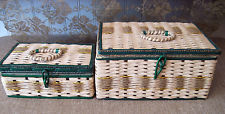 My grandmother died on my birthday in 1968. We couldn't wish her back, since she'd been in a lot of pain for a long time. Later, I helped Mom clean out her house, and we came upon her sewing basket. For some reason I asked if I could have it, and my mother said yes.
My grandmother died on my birthday in 1968. We couldn't wish her back, since she'd been in a lot of pain for a long time. Later, I helped Mom clean out her house, and we came upon her sewing basket. For some reason I asked if I could have it, and my mother said yes.I still have it. I think of her every time I take it out of its cupboard, though I can't think of a single time I saw Grandma sewing. It's hers, and that's enough.
My other grandmother was the type who asked her progeny what they wanted of her things long before she died. One day when I was visiting I told her about my new hobby, refinishing old furniture. Pointing to a table that had always sat in her living room, she explained that as a young woman she too had taken up that task. The classic-style table was cherry wood, she told me, and she had rescued it from somewhere and given it new life with elbow grease and varnish. "Maybe you'll want it when I'm gone," she said, and I readily agreed, though it was weird to consider that time. I've had it for forty years, and though I've downsized a few times, I can't let that particular piece go.
Keepsakes mean something to us, though they might mean nothing to others. When I die, I have no doubt someone will toss the battered basket of needles and thread in my sewing cabinet. The table will be sold or donated. No one will know how those items brought back memories each time I saw them, memories of Grandma P. or Grandma Mac, who taught me so much and loved me in such different ways.
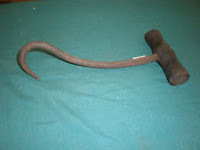 I have mementos of my grandfathers, too: a collection of miniature bottles one of them had as a boy, and for the other, oddly enough, a hay hook I found in a shed on the property. I immediately pictured it in his hand as he wrestled bales into place like the expert he was. I kept it, for him and for myself.
I have mementos of my grandfathers, too: a collection of miniature bottles one of them had as a boy, and for the other, oddly enough, a hay hook I found in a shed on the property. I immediately pictured it in his hand as he wrestled bales into place like the expert he was. I kept it, for him and for myself. Things don't really mean much to me, but some things attach to memories, and memories mean a lot.
Published on October 31, 2016 03:56
October 24, 2016
Feelin' Like Katie Scarlett
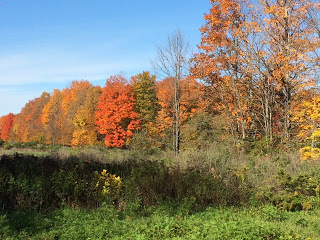
Long ago, I had a conversation with my dad that was a little unusual. He wasn't much for talking about feelings, but what he said often comes to mind when I take my daily walk.
John and I had lived in the city for the first few years of our marriage, but once we finished college, we wanted to move "home." My parents had bought property across the road from the family farm to add planting/pasture acreage, and there was an old, half-finished house there we'd played in as kids. We called and asked if they'd sell us the house, and they readily agreed, making us a very sweet deal.
That was good, because the house needed work. I was lucky John is so handy, and he was lucky I'm willing to serve as gopher, painter, and fetcher of cold libations. Forty-plus years later we can't say the house is finished, but it's comfortable and we're used to its eccentricities.
What I found when we moved to the property was that I couldn't get enough of walking. Much of the land is planted, but much is wooded too. Though I walk the same path every day, it never becomes boring. It doesn't matter if I see wild critters or not, though I often do. It's simply being out there. If I'm sad, I come back feeling better. If I'm bothered by a problem, the solution often comes into my brain while my eyes watch trees and my ears hear birds. If I'm happy--I just get happier.
One day in the '80s when I came back from a walk, Dad was working in his shed, and I stopped to talk. "You love this place," he said after I'd told him what I'd seen along the way.
"I do."
"That's good."
That's all there was to it, but it was like he'd written me a long, heart-felt letter. He loved it too, and he was pleased to see I felt the same way. He'd invested far more than I in it, clearing acreage for farming, plowing fields, and harvesting crops. Still, it made it worthwhile for him that his children appreciated the land he'd worked so hard on all his life. Two of us now call it home, and at least one sibling or spouse is usually out "appreciating" in some way: mowing, planting, tending--and walking.
Like Scarlett O'Hara, I hear my father's voice in my head as I take the familiar path around my half of the farm. Land isn't owned as much as it owns you, but for me, that bargain will always be a benefit.
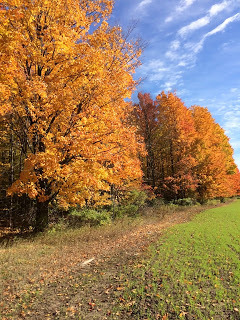
(The blog's background picture is another example of why I love this place.)
Published on October 24, 2016 04:38
October 17, 2016
Oh, Those Publishing Snobs!
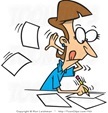 I read a very snarky article yesterday about how self-published authors just don't "get it right." The author explained that as a book reviewer she felt it was her duty (yes, she really did use that word) to point out the failings of those who have the nerve to go out on their own.
I read a very snarky article yesterday about how self-published authors just don't "get it right." The author explained that as a book reviewer she felt it was her duty (yes, she really did use that word) to point out the failings of those who have the nerve to go out on their own.I'll say at the outset that self-publishing availability does allow writers to publish work that simply isn't ready. A reader can figure out who those people are by perusing sample chapters on Amazon (or the book descriptions, written by the author in most cases). I have to admit from listening to readers and writers for years, there seem to be readers for every book, good or bad.
I object to someone who sets herself up as a judge of good books based on what the industry says and does. For example, the writer of this article claimed self-published books use the wrong fonts and improper layouts. Her wholesale condemnation and her contention that big booksellers always get it right was both offensive and silly.
Shortly after I finished reading the article, I opened a book released by a major publisher to find close lines, small print, and a spindly, faint font printed on cream-colored paper. Yuk! My first Maggie Pill book was set up according to "industry standards" that someone else chose. People said, "Loved the book--hated how hard it was to read!" After that I followed my own instincts and produced much easier-to-read books.
How many of us have half-ruined our eyes trying to read a big-time publisher's idea of "proper" formatting? My husband will struggle through a book like that if he's interested, but I've decided life's too short. (If I really want to read it, I buy it for Kindle.) The reading public is aging, and publishers must be aware of that, but their profit comes before all else.
I've also had the "Chapters MUST start on a right-hand page" argument with publishing purists.Why? That wasteful idea should disappear, like the two-spaces-after-a-period we were taught in long-ago typing class that is now taken as a sign of senility.
The article writer went on to disparage self-pub covers, implying that authors try to save a buck by making their own. Most don't, and again, the reader's eye will tell her if the cover is bad. If it is, be suspicious of the rest of it.
The article writer works for an organization that had reviewed self-published books and now has decided not to, for the reasons she listed. That's their prerogative, I guess, and I know the number of books coming out is staggering. Still, the publishing world is changing. By ignoring self-pubbed authors, they'd have missed The Martian, The Wool Trilogy, Still Alice, and 50 Shades of Grey (not a recommendation; just sayin') to name a few.
Publishing purists ignore the fact that some writers get tired of getting pennies for their work and (in my case) a whole year where a publisher announced, "We've gone bankrupt, so all you authors get nothing." Some of us worked hard to learn what to do and figured out that we can do it ourselves. We don't just slap a book together. We want to get it right, and we hire expert help when we need it.
That's the good part of not being a snob.
Published on October 17, 2016 04:39
October 10, 2016
Help for Wanna-be Writers
This is an excerpt from my presentation on publishing. It's by no means exhaustive, just a little help to get you started.
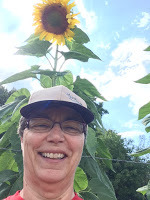 There’s a book that tells you EVERYthing about the self-publishing process. It’s around $15.00 but worth it. Let’s Get Digital-https://www.amazon.com/Lets-Get-Digital-Self-Publish-Should/dp/1475212607
There’s a book that tells you EVERYthing about the self-publishing process. It’s around $15.00 but worth it. Let’s Get Digital-https://www.amazon.com/Lets-Get-Digital-Self-Publish-Should/dp/1475212607Before you get too excited about all the money that’s going to roll in, you might want to read this article: “Everything You Wanted to Know about Book Sales but Were Afraid to Ask”- https://electricliterature.com/everything-you-wanted-to-know-about-book-sales-but-were-afraid-to-ask-1fe6bc00aa2d#.a3ar05u8a
Site to find free-lance editors, cover artists, etc. Reedsy. You tell them what you need, they match you with someone who can do that. https://reedsy.com/#/freelancers
To make Kindle E-books: Kindle Digital Platform- https://kdp.amazon.com/(There are lots of other places to create e-books. I just haven’t tried them.)
To make paperback books through Amazon: CreateSpace- https://www.createspace.com/
To make paperback books through Ingram (so bookstores can order them without admitting that that awful Amazon exists J) IngramSpark- http://ingramspark.com/
To publish just about anything to various outlets: Smashwords- http://smashwords.com/
Bowker is the only US provider of ISBNs. If you buy from anyone else, they’ve bought from Bowker and are reselling them to you. http://www.bowker.com/
U.S. Copyright office: again, if you get “help” with your copyright, you’re paying someone to fill out the short form the government requires and paying a LOT more for it. www.copyright.gov/
BEWARE sites: there are two sites that try to help authors navigate the dangerous waters of publishing. They rate publishers and agents by complaints received, so I always check before I deal with an unknown entity.
Writer Beware: www.sfwa.org/other-resources/for-authors/writer-beware Preditors & Editors: http://pred-ed.com/ Writers Market lists agents and publishers with lots of info on what they represent and how to contact them. https://www.amazon.com/Writers-Market-2017-Trusted-Published/dp/1440347735
Published on October 10, 2016 06:50
September 26, 2016
Parents Reading Poems
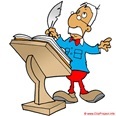 ...and reciting.
...and reciting.My mother was a great reader of poems, and she always had a book of them nearby. A Child's Garden of Verses was one of my favorites, but there were many more, and as we grew older, the poems grew more complicated: Poe, Whittier, Masters, and Dickinson. Later she discovered Shel Silverstein, and she read his work to her kids at school, unaware that some of them were banned for promoting cannibalism ("Someone Ate the Baby") or other silly non-reasons.
My dad was a reciter of poems, and he had a million of them. They were generally less literary than mom's, and from time to time he got scolded for choosing ones with words like poop in them or topics we were too young to understand, like marital infidelity. (No, I didn't get it, but I liked the fact that Mom was afraid I might.)
They made me a life-long lover of poetry, and I actually use poetry to calm myself down. If I can't sleep, I recite some of the two-dozen or so long poems I memorized as a result of teaching high school English for decades. The combination of different topic, rhythmic cadence, and effort needed to recall the lines distracts me from whatever I'm stuck on long enough to let me go to sleep.
When my spirits need a lift, I recall (sometimes in bits and pieces) the poems my parents passed on as I was growing up and almost immediately feel better.
These days I can visit Mom or Dad simply by reciting their favorite poems in my head. The lines come in their voices, and I can almost see their faces, Mom's intent on the book, Dad grinning a little at the humor in his favorites. I contend that poetry has done me much good in my life and certainly no harm. Every parent should find a few poems to read or recite to the kiddies. It balances those nagging parenting moments that are necessary but sometimes unpleasant, and makes for peaceful, enjoyable times together. It's a legacy your children will carry with them always.
One of Mom's favorites:
Choosing Shoes by Frida Wolfe New shoes, new shoes,
Red and pink and blue shoes.
Tell me, what would you choose,
If they'd let us buy?Buckle shoes, bow shoes,
Pretty pointy-toe shoes,
Strappy, cappy low shoes;
Let's have some to try.Bright shoes, white shoes,
Dandy-dance-by-night shoes,
Perhaps-a-little-tight shoes,
Like some? So would I.BUTFlat shoes, fat shoes,
Stump-along-like-that shoes,
Wipe-them-on-the-mat shoes,
That's the sort they'll buy.
One of Dad's (I chose a clean one. There are lots of versions of this online, but none like Dad's.):
One dark day in the middle of the night,Two dead men got up to fight.A blind man stood by to watch fair play, And a dummy shouted, "Hooray, hooray!"A dead horse came galloping by,Kicked the blind man in the eye--Knocked him through an eight-foot wallAnd down in a dry ditch that drowned them all.
Published on September 26, 2016 04:58
How Much Is Enough?
Thanks, George Michael! My version of that question doesn't apply to "Star People" but rather to series books. How many books can a series contain before it gets stale?
I guess it depends on the writer, and to some extent on readers. Some series characters I have stuck with for a long time, like Lee Child's Jack Reacher, Sue Grafton's Kinsey Millhone, Sara Paretsky's V.I. Warshawski, Dean Koontz' Odd Thomas, and Michael Connelly 's Harry Bosch. Some books are more memorable than others, but in the end it's the main character that brings me back when the next book is released. I will admit in at least one case above I recently reached my limit. I'm tired of the character and have no curiosity about what the next adventure is.
Some series characters grow and change, and some don't. Harry Bosch moves through time, falling in love, gaining a daughter, rejecting change, and recently retiring from the police force. Grafton takes a different approach, consciously leaving Kinsey in the last millennium (a good choice given that she's got 24 adventures out there and two more to go).
In the case of other authors' work, I often tire of the main character after only a book or two. Other readers wait eagerly for installment #23, so it could be me. It also could be that I learn everything there is to know about the character(s) early on. To keep things interesting, some authors start doing things to their protagonists that I find unpleasant to read. Others change the character in ways that repel me. While I know that being a detective/vigilante/sleuth might make a person more and more violent, I don't want to spend time with them any more when they step over certain lines, especially if they don't suffer emotionally because of it.
What this does for me as an author is make me reluctant to write a lot of books about one character or set of characters. I suppose I would if they had more to offer the reader, but as soon as I feel we know everything about them, usually three to five books, it's time to move on. Someone recently wrote to ask for another Dead Detective novel. While I had a great time presenting my whimsical view of the Afterlife, I think that topic has been covered. If I think of something, maybe.
What works for Lee Child just doesn't work for me.
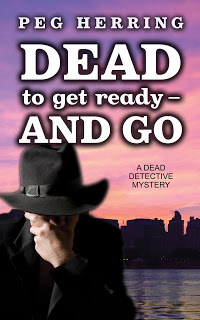 Book #4: The Last One?
Book #4: The Last One?
I guess it depends on the writer, and to some extent on readers. Some series characters I have stuck with for a long time, like Lee Child's Jack Reacher, Sue Grafton's Kinsey Millhone, Sara Paretsky's V.I. Warshawski, Dean Koontz' Odd Thomas, and Michael Connelly 's Harry Bosch. Some books are more memorable than others, but in the end it's the main character that brings me back when the next book is released. I will admit in at least one case above I recently reached my limit. I'm tired of the character and have no curiosity about what the next adventure is.
Some series characters grow and change, and some don't. Harry Bosch moves through time, falling in love, gaining a daughter, rejecting change, and recently retiring from the police force. Grafton takes a different approach, consciously leaving Kinsey in the last millennium (a good choice given that she's got 24 adventures out there and two more to go).
In the case of other authors' work, I often tire of the main character after only a book or two. Other readers wait eagerly for installment #23, so it could be me. It also could be that I learn everything there is to know about the character(s) early on. To keep things interesting, some authors start doing things to their protagonists that I find unpleasant to read. Others change the character in ways that repel me. While I know that being a detective/vigilante/sleuth might make a person more and more violent, I don't want to spend time with them any more when they step over certain lines, especially if they don't suffer emotionally because of it.
What this does for me as an author is make me reluctant to write a lot of books about one character or set of characters. I suppose I would if they had more to offer the reader, but as soon as I feel we know everything about them, usually three to five books, it's time to move on. Someone recently wrote to ask for another Dead Detective novel. While I had a great time presenting my whimsical view of the Afterlife, I think that topic has been covered. If I think of something, maybe.
What works for Lee Child just doesn't work for me.
 Book #4: The Last One?
Book #4: The Last One?
Published on September 26, 2016 04:58
September 12, 2016
People Ask Cool Questions #2
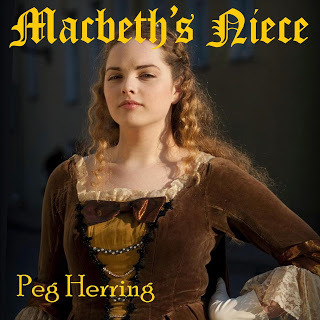 My first release, now in audio:Macbeth's NieceThis month I'm answering questions I often get at personal appearances. Today's question is "How long does it take to write a book?"
My first release, now in audio:Macbeth's NieceThis month I'm answering questions I often get at personal appearances. Today's question is "How long does it take to write a book?"That's a little like "How many angels can dance on the head of a pin?" It's part practical, part philosophical, and mostly unanswerable.
We all know authors who take years to write a book. Some of them are quite self-righteous about it, copping a "you can't rush genius" attitude. I'm no genius, so I can't say if that's true. I've noticed, however, that the rest of us are writing as fast as we can, and while it used to take two years minimum to get a new book out, most publishers are fine these days with more than one a year.
That can lead to some loss of quality, and readers with an editor's eye bemoan the modern tendency to rush to get a book out. Still those same readers go on Facebook or Goodreads and wonder when Author X is going to stop dilly-dallying.
My writing process begins with a rough draft that's pretty terrible. When it's finished, I put it out of sight for a few weeks then go back and rewrite to make it less terrible. There's also what authors call the muddle in the middle, a point in writing a book where you've made such a mess of things that you don't think you can write your way out. Sometimes all you can do is give the muddle time to resolve.
Then there's editing. It takes time to read a book and thoughtfully decide what has to be changed, what might be changed to make it better, and what doesn't need changing but should be tweaked. Good editors take that time, so it generally takes a few back-and-forth exchanges between editor and writer to get to a point where they agree the book is solid.
To answer the question, then, these days I shoot for six months. A rough scenario might be four weeks for the rough draft, two weeks "rest," two weeks to revamp. My first reader takes over then, and in 2-4 weeks I'm making changes she suggests. Then the editor goes at it, and we back-and-forth for a month or two. When that's done, I submit to the copy editor, who irons out the leftover wrinkles.
That's if all goes well, of course. There are times when one or more of those things takes longer, which sets the whole process back. And of course life intervenes sometimes and says, "You won't be writing this week, so just accept it."
I didn't mention research yet, but I spend a lot of time spent finding out things I don't know and checking on things I might or might not know.
A caveat for those just starting out: this is my process after twenty-plus books. It took me MUCH longer in the beginning. The "one book a year" advice is probably a good starter's rule, because as a newbie, you really don't know what you don't know yet.
Published on September 12, 2016 03:37
September 6, 2016
People Ask Cool Questions #1
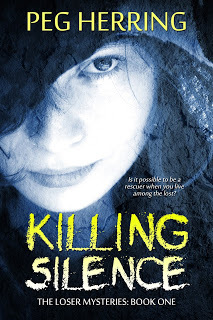 https://www.amazon.com/Killing-Silence-Loser-Mysteries-Book-ebook/dp/B00A87IAQGI'm on vacation for September, so for the blog I thought I'd address some questions people ask at personal appearances.
https://www.amazon.com/Killing-Silence-Loser-Mysteries-Book-ebook/dp/B00A87IAQGI'm on vacation for September, so for the blog I thought I'd address some questions people ask at personal appearances.QUESTION #1 Where do you get the names/inspiration for your characters?
Often from real people I know. I need an image in my head to create a character. (Brag here: one site said last week that my characters are people you think about long after you finish the book. YAY!)
I start with someone I've known--perhaps a coworker or a former student--and imagine how that person would react to the scenario I'm creating. I always add when I admit this that those people NEVER stay real. As soon as I have a firm picture in mind, the character becomes a whole new person, with his own personality, attitudes, and personal details.
For example, Verle in the Loser Mysteries started out as a man who was sort of my second dad, since I practically lived at his house as a kid. Readers who knew him would soon find, however, that he isn't like the real Verle at all. For one thing, he's afraid of his wife--like that would happen!
Loser herself was inspired by homeless people I saw during a stay in Richmond, Virginia, in 2007. I can't explain how it happens, but I started wondering what might happen if a homeless woman felt compelled to investigate a murder.
Once I tell them that, people are likely to ask if I know introduced myself to any of those homeless people so I could get to know them. No. People are people, and over the years I met plenty who lived outside what we consider "normal" circumstances. Though their situation separates "them" from "us," they have similar motivations. Their coping methods just have to be a lot different.
Reality is where my characters start. After that it's all my imagination.
The Loser Mysteries are available in print or as e-books on Amazon and by order at your local bookstore. Killing Silence is also available in audio format.
Published on September 06, 2016 03:37
August 29, 2016
Buchbrauchen
 Okay, I made that word up, and I never studied German, so don't criticize!
Okay, I made that word up, and I never studied German, so don't criticize!There should be a word for wanting something good to read but not being sure what you want or able to find it.
Apparently what I want to read isn't very popular right now.
I've been sick of serial killers for years, but that's mainly what Amazon offers when you type in mystery.
I'm also sick of protagonists who aren't much better than the criminals they seek. I gave up on two books this week. In one the protag shared his client's cocaine with him and spent waaaaaay too much time describing the physical attributes of the sleazy, slimy women the client surrounded himself with. In the other, every cop was corrupt and every lawyer was shady to the point I was sick of all of them.
I've never been much for books where the mystery takes second place to something else, like growing kumquats or shopping.
I'm disappointed by books where the killer comes totally out of the blue in the last chapter. I should at least have the sense there were things I might have picked up on.
(I got a note from a reviewer last week who gave Dead for the Money a "solid" four stars because he enjoyed the book but figured out who the killer was before the end. My contention is that those of us who read mysteries a lot will often have an idea who the killer is because we're "experienced investigators." This is especially true for writers, who see where the author is trying to take the story because we do the same thing ourselves.)
So what is my buchbrauchen?
I want a good mystery. Don't care about anyone's sex life. Don't want to know how they make Christmas cookies. The protagonist can have faults, but I don't want those faults to be disgusting, depressing, or dwelt upon to the point they drive me nuts.
Such books are hard to find these days, since the public taste seems to run just the opposite. I try to write what my buchbrauchen demands, as James Fenimore Cooper did. Unhappy with what was available in his day, he wrote the kind of books he wanted to read. It might have ended up that he was the only one interested, since he went against the trend, but it didn't turn out that way.
Published on August 29, 2016 04:36



